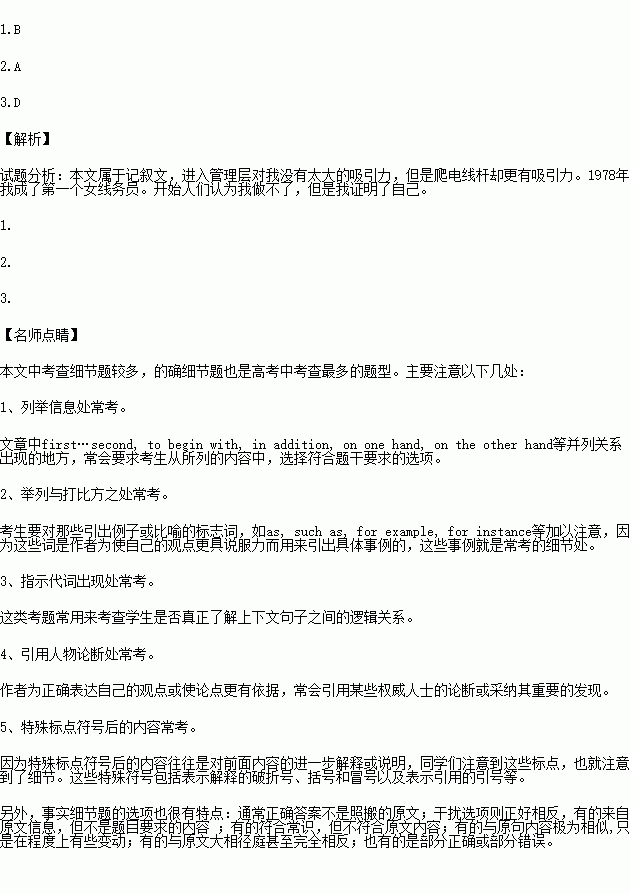题目内容
Climbing the corporate ladder (晋升) during my 32 years at Southern Bell (now AT&T) never appealed much to me. But climbing telephone poles? Now that's a whole different story.
In 1978, I became the first female lineman in Columbus, Georgia. I really enjoyed the work, and most of the men accepted me because I worked hard at it. I think that at first, they didn't think I could do it. But I got right in there and proved myself.
I was a lineman for about three years. Then l went on to work at other outdoor jobs at the company before l retired in 1997.
I decided to become a lineman because I wanted to work outdoors. I was a tomboy (假小子) as a child and even built my own tree house, so you could say I had a little experience. My husband, William, encouraged me to give the job a try. After work, I liked to drive around town and show him the wires I'd spliced (加固) that day.
People were surprised to see a female lineman. They'd say, “Look, that's a woman up that pole." One day I heard a man say, “Oh, look, there's a telephone man-woman!" Safety belts and hooks minimized the risk of falling, but concentration was essential. Sometimes I felt a little nervous, but the guys told me I was less likely to fall if I wasn't too confident. It helped that I was strong, because the cables and equipment are heavy. I'm not sure every woman could've done what I did. 1 took a lot of pride in it.
1.When the author first became a lineman, .
A. she was sure to be promoted
B. she loved it and went all out for it
C. she tried her best to convince her husband
D. she received immediate recognition from colleagues
2.What is needed to be a lineman according to the author?
A. Concentration and strength.
B. Confidence and patience.
C. Bravery and devotion.
D. Efficiency and talent.
3.Which of the following best describe the author's husband?
A. Outgoing and considerate.
B. Proud and demanding.
C. Adventurous and humorous.
D. Open-minded and supportive.


